Good science kits can be hard to find, but you'll never be disappointed with MEL Science. Each kit contains everything you need to carry out a hands-on science activity or experiment safely at home. The instructions are easy to follow and presented in a fun and engaging way and extra videos and associated app are fantastic for explaining the science behind the activity. The whole experience is very interactive.
Mel Science STEM Kits are available for kids ages 5 +. These projects are mostly things you can build, like an electric boat, gyroscope and projector. We tried the Science of Light kit which kept my 7-year-old engaged from start to finish. He also enjoyed the extra puzzles and mazes at the back of the instruction book after we'd finished.
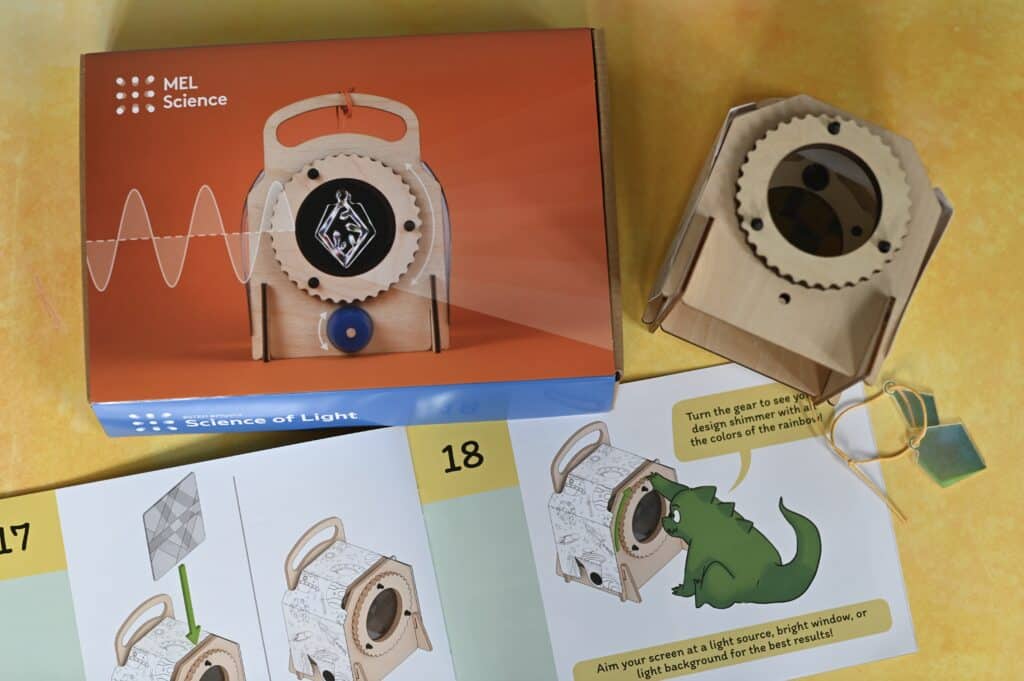
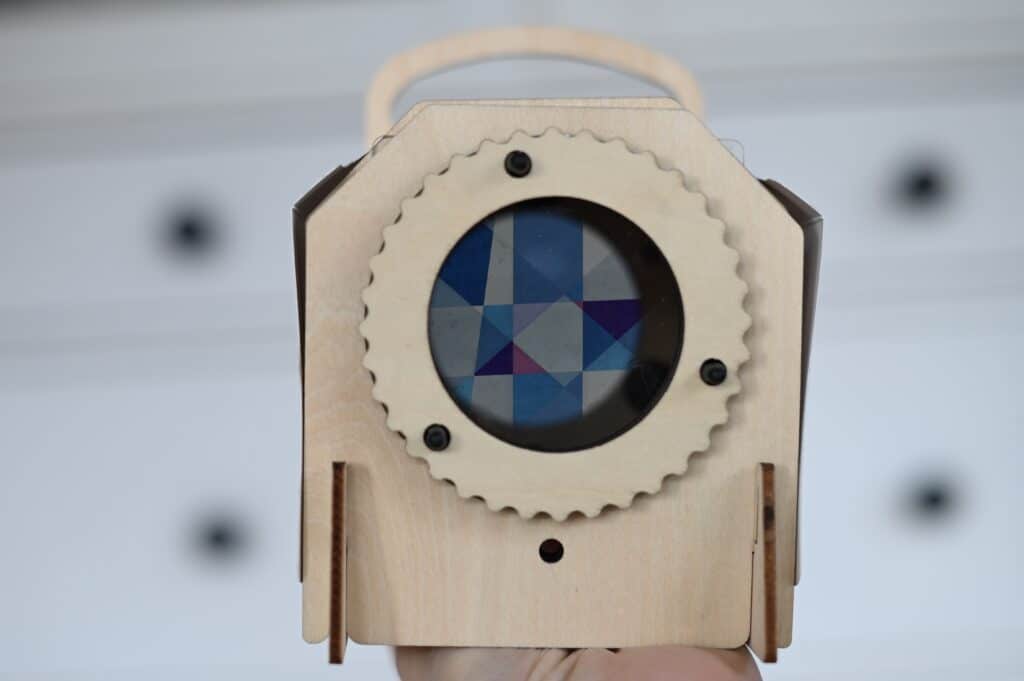
I did have to help him a little bit with the construction, but it was a really nice way to spend some time together. He's been proudly showing his creation and explaining the science behind it to family and friends ever since.
Looking at the other kits in this range I can immediately see that he would enjoy most of them, especially the Code Breaking and Aircraft set.
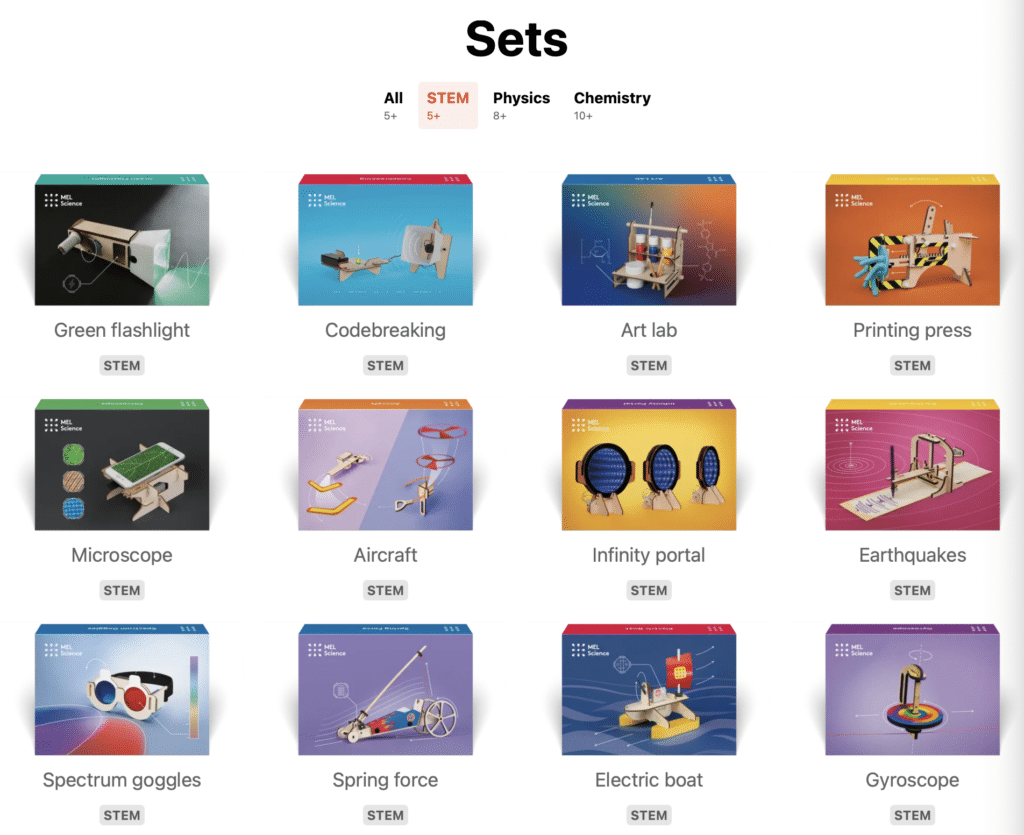
The Physics sets are for children aged 8 and above and include things like lenses, aerodynamic and magnetic levitation.
The Chemistry sets are age 10 + and look fantastic. I can see just from looking at them how much my children would enjoy them. Chemistry often provides those little "wow" moments that can spark a lifetime love of science and these are the hardest type of experiments to do at home without a kit.
Here at Science Sparks, we try to make science at home as simple as possible, but there's no denying that having everything you need in a ready to go kit is very handy, especially if you don't have much time to plan.
Advantages of using a science kit
- They usually contain everything you need to complete the science experiment.
- If the activity needs a chemical or material that's difficult to source, you don't have to spend time searching for it.
- The kit contains just what you need, so there's no waste.
What's inside a Mel Science Kit
Mel Science kits contain everything you need to complate a science activity, along with instructions and safety advice.
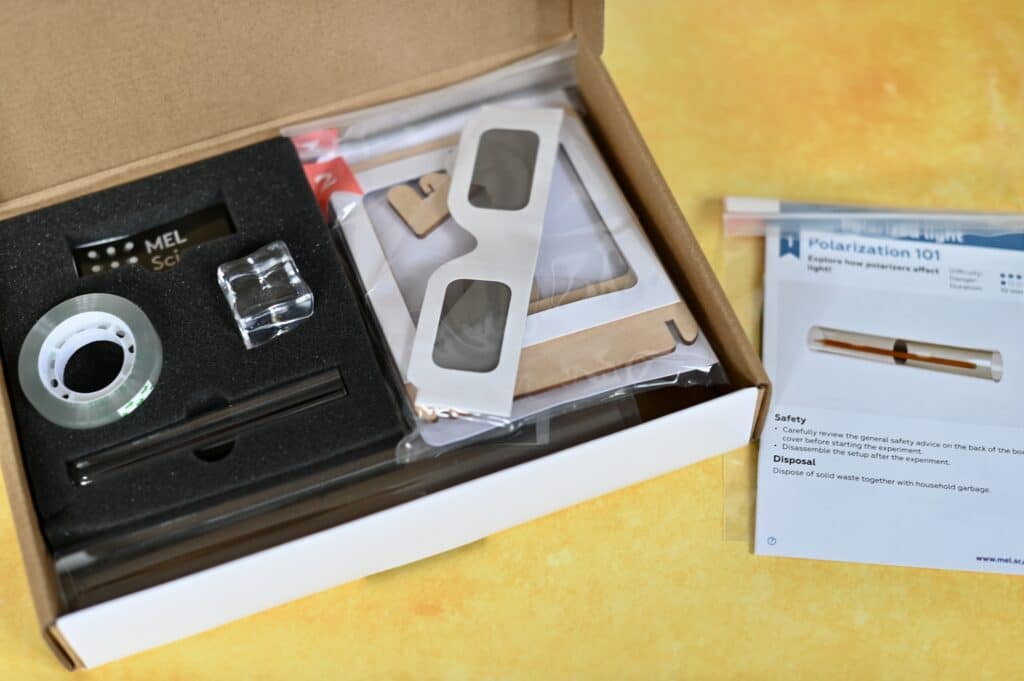
Mel Science Kit Review
Subscriptions are available monthly or annually, and subscribers can choose their preferred subject or mix and match.
The subscription cost is quite pricey, but the materials, instructions and extras, like the app, are fantastic. We loved the whole hands-on, yet immersive experience Mel Science offers. They're a unique science kit with experiments you wouldn't normally be able to carry out at home, which makes them a great option for little scientists and great fun for grown-ups too.
If you want to try MEL Science you can use my code SPARKS50 to get 50% off your first box.
We were sent the sets above for the purpose of this review
Last Updated on February 26, 2025 by Emma Vanstone
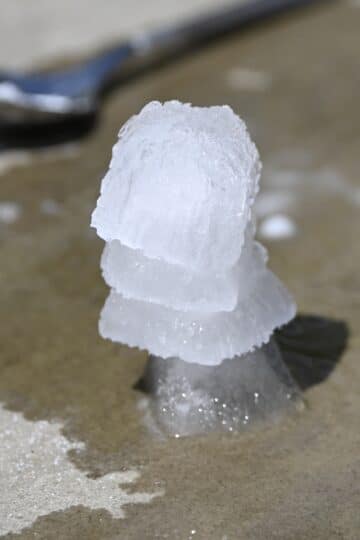
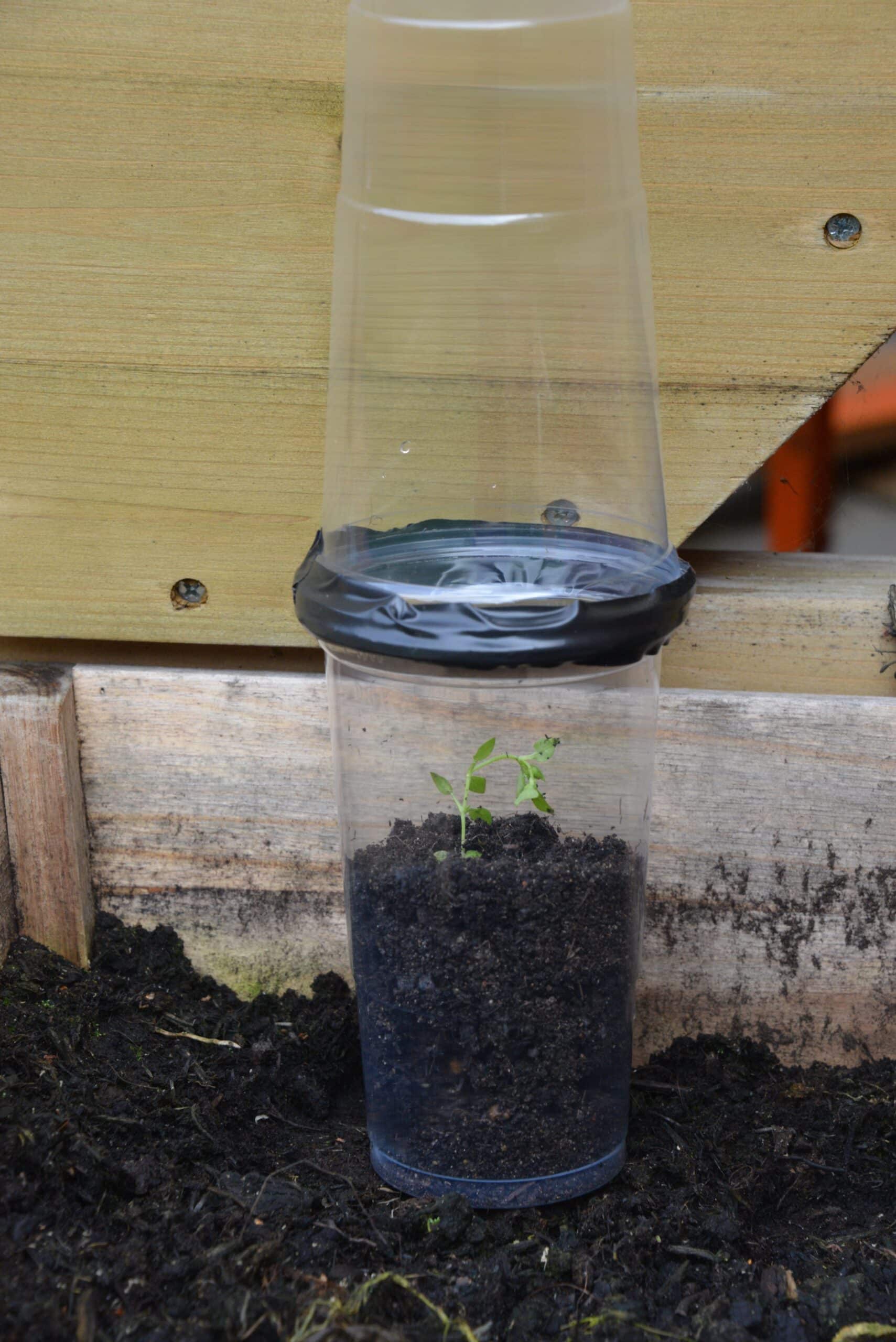
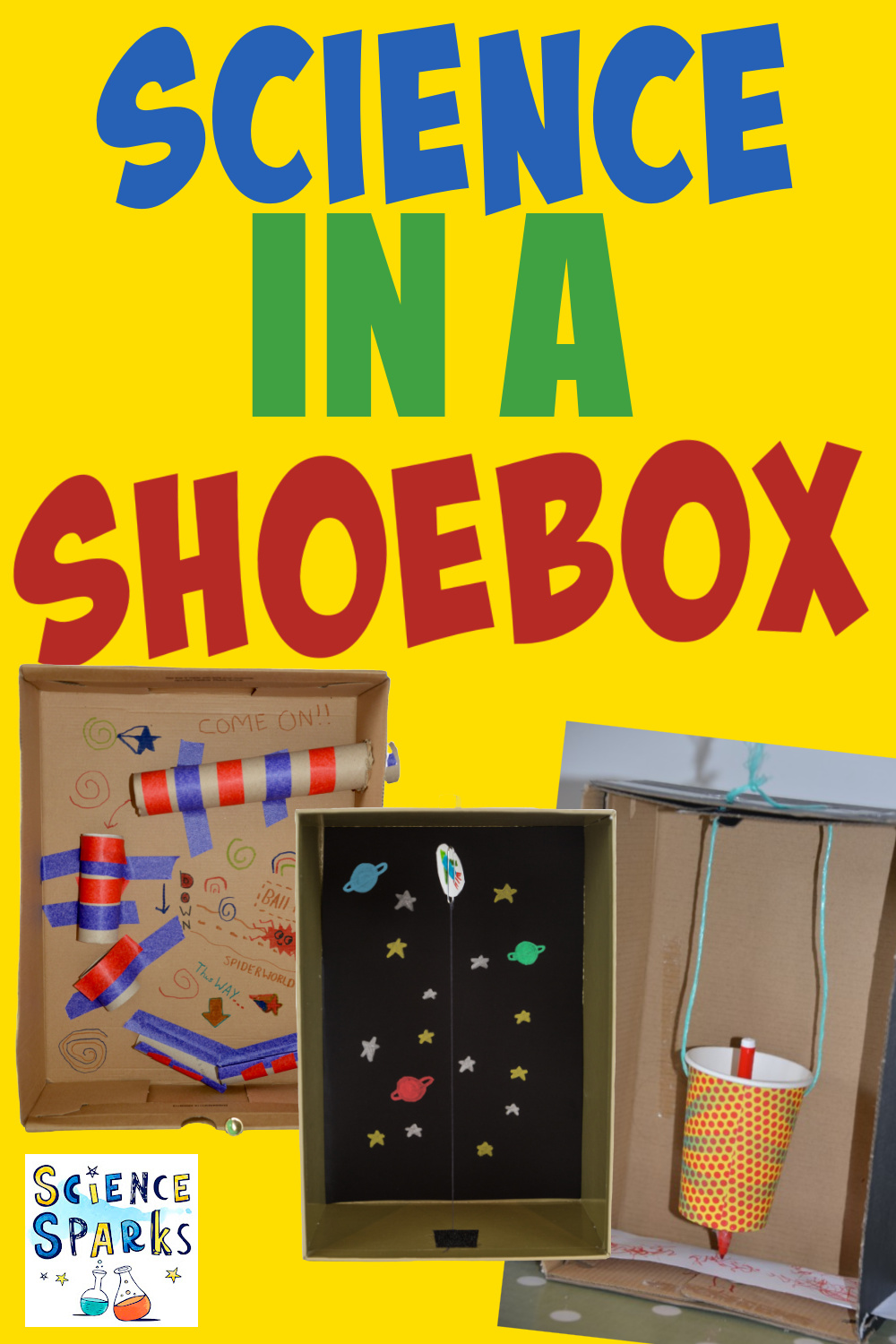
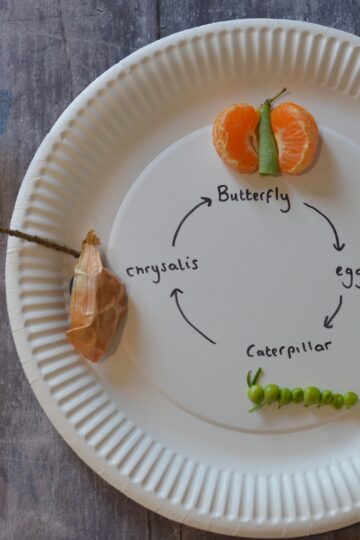
Leave a Reply